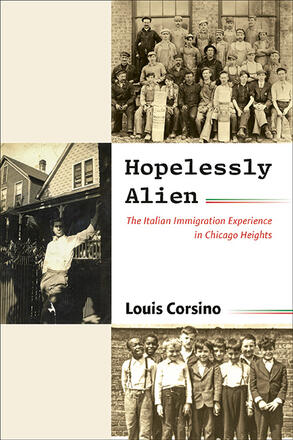
Hopelessly Alien
The Italian Immigration Experience in Chicago Heights
Alternative formats available from:
An in-depth sociological investigation of "hope" as it applies to the Italian immigrant experience in the blue-collar suburb of Chicago Heights between 1910 and 1950.
Description
Hopelessly Alien is an in-depth study of Italian immigration to Chicago Heights, Illinois, between 1910 and 1950. Drawing upon oral histories, interviews, historical documents, and census materials, Louis Corsino examines the critical concept of hope, which most immigration studies have cast in privatized, psychological terms as the motivation to emigrate in search of a better life. This investigation offers a more contentious, sociological perspective, depicting hope as both an ideological lure to recruit and manage the "foreign element" and as a resource immigrants employed to purchase acceptance and avoid a disparaging label as a "hopelessly alien" stranger. These dialectical processes are illustrated through the Italian immigrants' pursuit of occupational mobility and homeownership, and the appropriation of their children's hopes. Each became forms of cultural capital that demonstrated a public commitment to the American ethos of "joyful striving." Each provided measures of success, but these individual pursuits came at the expense of upsetting the necessary tension between individual and communal hopes.
Louis Corsino is Professor of Sociology at North Central College in Naperville, Illinois. He is the author of The Neighborhood Outfit: Organized Crime in Chicago Heights.
Reviews
"This book upends the widely held belief that immigrants' decision to leave Italy was fueled solely by a hope for upward mobility and a greater social status than could be attained by remaining in Italy. While nominally a case study of Italian immigrants in Chicago, Corsino's findings will certainly spur researchers to examine not only the experiences and motivations of Italian immigrants elsewhere in the United States, but those of other ethnic groups as well, and have the potential to lead to a wholesale reexamination of immigration motivation en masse." — John R. Mitrano, Central Connecticut State University